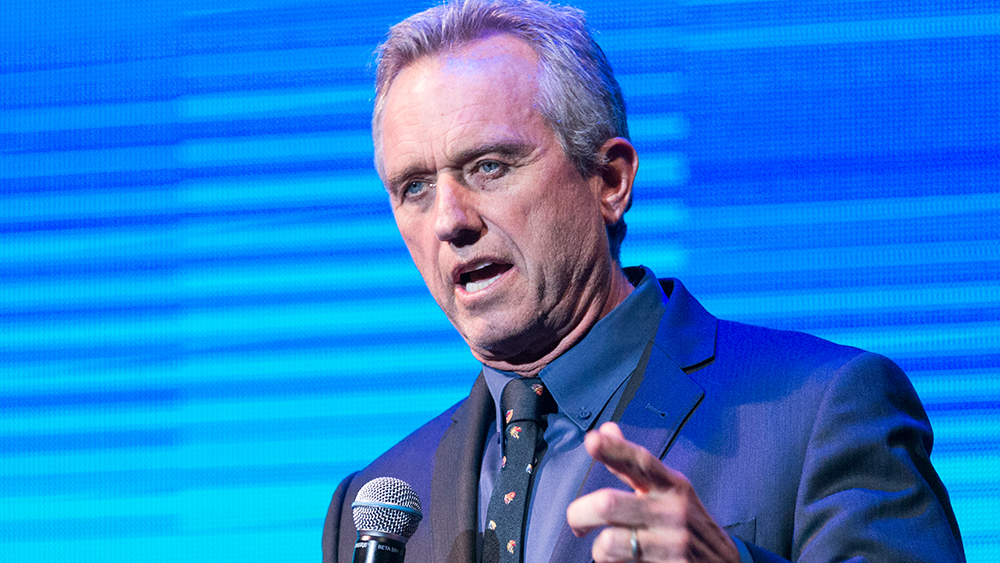More than 60% of Americans are living paycheck-to-paycheck as rising inflation continues to squeeze their budgets
09/06/2023 / By Laura Harris

A new study conducted by financial services company LendingClub has revealed that more than six in ten Americans are now living paycheck to paycheck as inflation continues to rise.
According to the study, as of July, 61 percent of Americans reported that they were barely making ends meet compared to 59 percent during the same month in 2022.
The findings coincide with the data released by the Bureau of Labor Statistics on Aug. 31, showing a 0.2 percent core inflation in the Personal Consumption Expenditures index, a key measure closely monitored by the Federal Reserve, in both June and July.
Moreover, the study indicated that dining out, attending live events and purchasing toys, clothes and prescription drugs are major contributors to the rising cost of living in July this year compared to the same period in 2022.
For instance, ordering a dish with beef and veal has become nearly 11 percent more expensive. Enjoying a beer at a bar or restaurant saw a four percent increase. The prices of clothing and footwear also increased by more than 2.4 percent, and children’s clothing jumped a substantial 5.4 percent.
Healthcare, such as pharmaceutical costs, increased by 3.4 percent, prescription drugs by 2.8 percent and dental costs by 5.3 percent. Even gasoline prices have increased by approximately 60 cents since the beginning of the year.
In response to the ongoing inflation, central bank officials have raised interest rates 11 times, pushing the Fed’s key interest rate to a target range of 5.25 percent to 5.5 percent, the highest level in more than 22 years. The impact of these rate hikes on consumers is palpable, as a recent TD Bank annual consumer spending index revealed that four out of five consumers have had their spending habits affected by inflation.
“Consumers are undoubtedly continuing to feel the impact of inflation and rising interest rates,” noted Chris Fred, the head of credit cards and unsecured lending at TD Bank. (Related: Inflation forcing Americans to rely on credit cards for daily expenses.)
Low-income families are mostly affected by the growing inflation
Based on the findings of LendingClub, 78 percent of consumers earning less than $50,000 annually and 65 percent of those earning between $50,000 and $100,000 reported living paycheck to paycheck. In contrast, only 44 percent of those earning $100,000 or more reported living paycheck to paycheck.
Meanwhile, in a study conducted at the Wharton School of the University of Pennsylvania, households earning less than $20,000 annually bore the brunt of inflation in 2021. Approximately 90 percent of these households spent more than what they earned, and these low-income families had to borrow or deplete their pandemic-acquired savings most of the time to sustain their lifestyles.
Although these lowest-paid workers experienced the most substantial wage growth in 2022, the surge in living costs overshadowed their increase.
However, low earners who somehow managed to save during the pandemic are now at risk of depleting their cash reserves. While savings among the lowest-income families remained 65 percent higher than pre-pandemic levels by the end of 2021, this represented a significant drop from their peak, which was 120 percent higher in March 2021.
In short, low-income Americans are in a tough spot. Prices for things they need are going up because of inflation, which is making it harder for them to manage their money. Also, the money they saved during the COVID-19 pandemic is running out to sustain their spending.
The latest news about the current state of the U.S. can be found at Collapse.news.
Watch the video below to learn more about the exploding credit card debts amid the ongoing inflation.
This video is from the Zoon Politikon channel on Brighteon.com.
More related stories:
Inflation, economic downturn force Walmart to close under-performing stores.
Inflation continues to hurt Americans despite Biden’s claim of strong economic recovery.
Sources include:
Submit a correction >>
Tagged Under:
bubble, collapse, cost of living, crisis, debt bomb, debt collapse, economic collapse, economic riot, economy, Federal Reserve, finance, finance riot, inflation, market crash, money supply, pensions, rising costs, risk
This article may contain statements that reflect the opinion of the author
RECENT NEWS & ARTICLES
COPYRIGHT © 2022 EconomicRiot.com
All content posted on this site is protected under Free Speech. EconomicRiot.com is not responsible for content written by contributing authors. The information on this site is provided for educational and entertainment purposes only. It is not intended as a substitute for professional advice of any kind. EconomicRiot.com assumes no responsibility for the use or misuse of this material. All trademarks, registered trademarks and service marks mentioned on this site are the property of their respective owners.




















